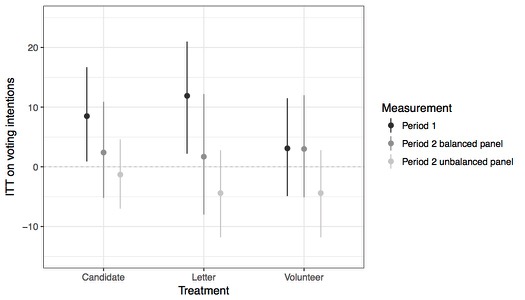Alexander Wuttke and Florian Foos
Political entrepreneurs put liberal democracy under pressure by fueling concerns and exploiting citizens’ fragile commitment to this system of government. As difficult trade-offs are made apparent in the context of the Covid-19 pandemic, we investigate one communicative strategy that political elites who want to defend the principles and practices of self-governance in pluralist societies can pursue. We propose “democratic persuasion” as an actionable, theory-driven intervention to increase the resilience of citizens' commitment to liberal democracy. "Democratic persuasion" requires that legislators actively make the case for democracy and discuss inherent trade-offs while engaging existing doubts and misperceptions. We invited citizens on facebook to attend one of sixteen Zoom townhalls organized in collaboration with members of the German parliament. Each legislator conducted two town halls and we randomly assigned the townhall, where they employed "democratic persuasion". Results suggest that “democratic persuasion” increases support for liberal democracy among citizens in the short term.
The Parliamentary Candidate as Persuader: Evidence from randomized candidate-voter interactions (draft, September 2018).
Florian Foos

Photo: The Guardian
Despite a renewed focus on electoral persuasion and principal-agent problems in ground campaigns, the role of parliamentary candidates in persuading voters has received little attention. Candidates should be effective persuaders because they can control the message, and persuasion is a key skill required in being selected as a candidate. Nevertheless, robust causal evidence on parliamentary candidates’ abilities to inflhence opinion formation is rare. Drawing on two randomized field experiments, a telephone survey, and an extensive panel dataset of individual voting intentions collected by the UK Labour Party, I show that introduction letters and personal meetings with a parliamentary candidate affected voting intentions. Initially, one in ten voters switched their voting preferences in the desired direction after interacting with the candidate. Effects persisted for up to six months, but decayed over time. This study provides new insights into the short- and long-term effects of candidate-voter interactions during a general election campaign.
